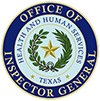Audit identifies data errors in pharmacy’s record submissions
During a recent audit of a specialty pharmacy, the OIG found that 44 out of 120 prescriptions had conflicting data between the number of authorized refills and the number of refills printed on the dispensing label. The audit showed that Texas Children’s Hospital–Specialty Pharmacy properly billed for the reviewed prescriptions. However, the provider did not consistently comply with specific claims submission and medication dispensing requirements.
According to the pharmacy, the 44 prescriptions with conflicting refill information resulted from a system failure after a software update removed the authorized refill data from prescriptions. The audit noted that when prescription submissions are not accurate or are incomplete, Medicaid clients could be unable to access medications. OIG investigators suggested the pharmacy take steps to verify the accuracy of prescriptions which the pharmacy agreed to correct along with ongoing monitoring to avoid future inaccuracies.
The OIG also reviewed the pharmacy for accuracy in dispensing medication, including (a) member information; (b) dispensed medication name, strength, and quantity; and (c) prescriber information. Two of 120 pharmacy encounters tested involved dispensed quantity or dispensing label errors. Specifically:
- One claim with a dispensed quantity of 90 mL did not align with the prescribed quantity of 150 mL.
- A second claim with a dispensing label that indicated a days’ supply that did not align with the prescribed days’ supply. The pharmacy correctly dispensed the prescription at 225 mL, which provided a 25-day supply based on the dosage directions; however, the submitted claim and the dispensing label indicated a 30-day supply.
When prescriptions do not meet the prescribed amount, clients can experience adverse health effects or require more frequent refills than the prescriber intended. Additionally, when a dispensing label contains an incorrect day’s supply, the pharmacy might submit each associated refill for payment too soon, which can cause a denial of the refill and a delay in receiving needed medication for the member.

